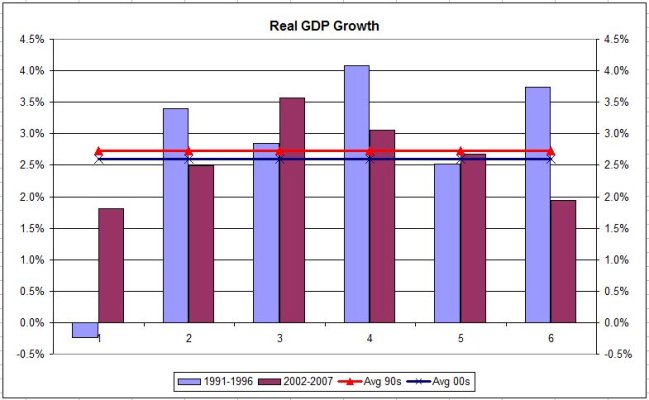Westernskies
Thinks s/he gets paid by the post
- Joined
- May 5, 2008
- Messages
- 3,864
The US must raise taxes
There you go again...
Let's try cutting spending instead. Balance our budget. Reduce the size of the bloated public sector, and quit spending money we don't have on every feel-good, boondoggle earmarked spending program that comes along. Hold our elected officials accountable for every dime they request from us. Spend our tax dollars on improving education and infrastructure here at home, instead of pissing away billions every year on our demonstrably inneffective "love thru largess" programs around the world with folks who hate us. Quit using the US military as the world's police force while the EU and the UN wring their hands and bloviate about problems in their backyards. Reserve our social programs for our own citizens, but don't make them a multi-generational way of life. Get tough on illegal immigration, and secure our borders. Expand our manufacturing base to provide jobs here at home and reduce our trade imbalance. Eliminate unnecessary trade and agricultural subsidies. And so on...If after implementing all these measures we need to raise taxes to meet our basic needs for governance, then I guess we need a referendum on how much we really need to to raise them and for how long; akin to local bond issues...



